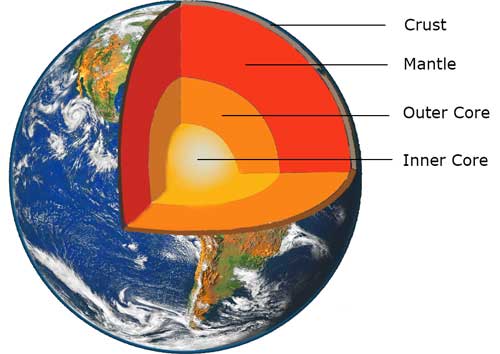Engineering geology deals with the study of the structure of the earth in relation to the civil engineering for the execution of safe and cost-effective design for construction projects.
Every civil engineering works involve earth and its features. Geological information are necessary in every stage of the project be it planning, designing or construction phase of the project.

The importance of geology in civil engineering may be briefly outlined as follows:
- Geology provides a systematic study of the structure and properties of construction materials and their occurrence. The civil engineers need to know the properties of rocks accurately to enable them to consider different rocks for any required purpose that is as a foundation rock, as road metal, as concrete aggregate, as building stones, as the roofing material for decorative purpose.
- The selection of a site is important from the viewpoint of stability of foundation and availability of construction materials. Geology provides knowledge about the site used in the construction of buildings, dams, tunnels, tanks, reservoirs, highways and bridges.
- Geology helps to identify area susceptible to failures due to geological hazards such as earthquake, landslides, weathering effects, etc.
- The knowledge about the nature of the rocks is very necessary for tunnelling, constructing roads and in determining the stability of cuts and slopes.
- The foundation problems of dams, bridges and buildings are directly related to the geology of the area where they are to be built.
- The knowledge of groundwater is necessary for connection with excavation works, water supply, irrigation and many other purposes. Hydrological maps provide information about the distribution of surface water channels and the groundwater depth.
- Geological maps help in planning civil engineering projects. It provides information about the structural deposition of rock types in the proposed area.
- Geology helps in determining the earthquake-prone areas. If any geological features like faults, folds, etc. are found, they have to be suitably treated to increase the stability of the structure.
- The knowledge of erosion, transportation and deposition (ETD) by surface water helps soil conservation, river control, coastal and harbour works.
- A geological survey of a site before starting a project will reduce the overall cost.
These are the reasons; civil engineering students are taught geology in their curriculum. It illustrates the importance of geology in civil engineering.
Reference: ENGINEERING GEOLOGY
Also Read: Introduction to Geotectonic


Wonderful so nice
Helpful 🙌
Thanks
Thanks
So good and helpful👌
Thanks
Amazing